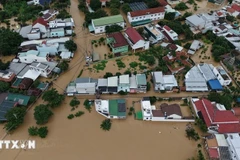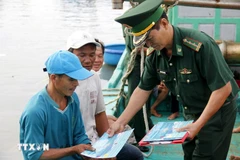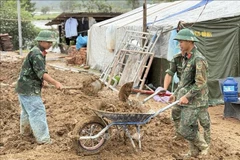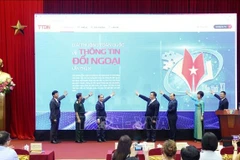About 300,000business entrepreneurs are involved in logistics services, providingjobs for nearly 1.5 million labourers across the country, of whom 40percent are from Ho Chi Minh City.
However, theseemployees could only meet 40 percent of the sector's demand, so thecountry is facing a serious shortage of workers in the next three years,the institute has reported.
In the next threeyears, those companies providing logistics services would need more than18,000 workers, while other firms that provide their own logisticsservices would need more than a million more employees, it said earlierthis week.
A lack of vocational training and information was hindering the employment process for the sector, experts warned.
Dr Le Van Bay, a logistics lecturer, said education and training incolleges and universities have ignored the sector so only a few studentsstudy logistics.
Bay said the HCM City Universityof Transport and the Vietnam Maritime University have opened logisticsfaculties, but they face increasing obstacles to improve the quality oftraining due to a lack of experienced lecturers.
A logistics employer from HCM City complained his company wasstruggling to expand due to a shortage of high-skilled workers.
He said most experienced logistic workers prefer part-time work, whilenew graduates are not qualified for the positions due to a lack of softskills, including communication and foreign languages.
A recent survey by a HCM City development research institute said 53.3percent of logistics companies in the city faced a shortage ofhigh-skilled workers.
About 30 percent of thosecompanies complained they had to re-train their employees and only 6.7percent were satisfied with their labourers' qualifications.
While the Vietnamese logistics sector is only in the early stages ofdevelopment, demand for such services is growing fast, a developmentspurred by the country's continued inflow of foreign direct investment(FDI).
Accounting for more than half ofthe total accrued FDI, investment in manufacturing in particular hasbeen driving the country's demand for international transport andlogistics services.
Situated to the southeast of theIndochinese peninsula and with a 3,200 km coastline, Vietnam dependsheavily on sea freight transportation for its external trade.
With commercial and manufacturing activities developing much in thesouth, the ports along the Mekong Delta and in HCM City havetraditionally been the mainstay of Vietnam's transport and logisticsindustries.-VNA
























